
Duiyi Dai (Claire), a PhD student from the Department of Economics, describes below how BlueBEAR is essential for her research into quantifying Brexit uncertainty, reducing the time spent running her analysis from two months on her own device to just one day!
What is your research about?
The term “Brexit” was first used in May 2012, eight months before the then British Prime Minister David Cameron announced he would hold a referendum on whether the UK should leave the EU. The term “Brexit” is now in popular usage, especially after the largely unanticipated result that the UK was to leave the EU. An immediate reaction to the vote was a substantial and protracted increase in uncertainty that affected different aspects of the UK economy with some sectors and groups of people more heavily impacted than others.
I am a Ph.D. candidate from the Department of Economics. Our work has been focusing on measuring Brexit uncertainty. The purpose of our paper is to construct aggregate and topic-specific news-based indices of Brexit uncertainty for the UK economy, that from a policymakers perspective can be updated in close to real-time and cost-effectively. Using techniques from computational linguistics we derive our Brexit uncertainty indices (BUIs) from the frequency of relevant news coverage from eleven leading UK newspapers. The Brexit uncertainty indices that are generated in my work (and regularly updated) are freely accessible online at our project website https://sites.google.com/view/brexituncertainty/bui.
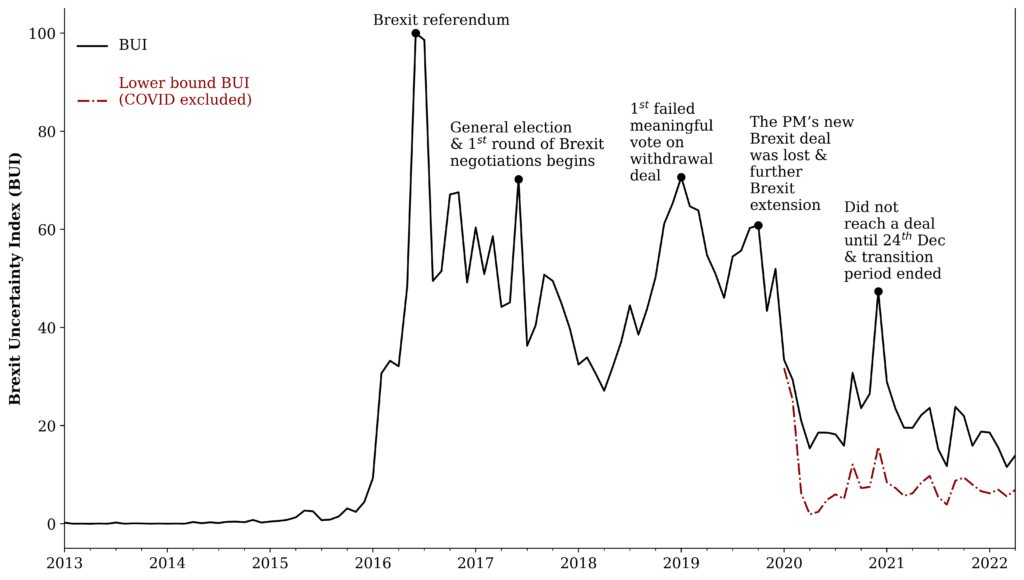
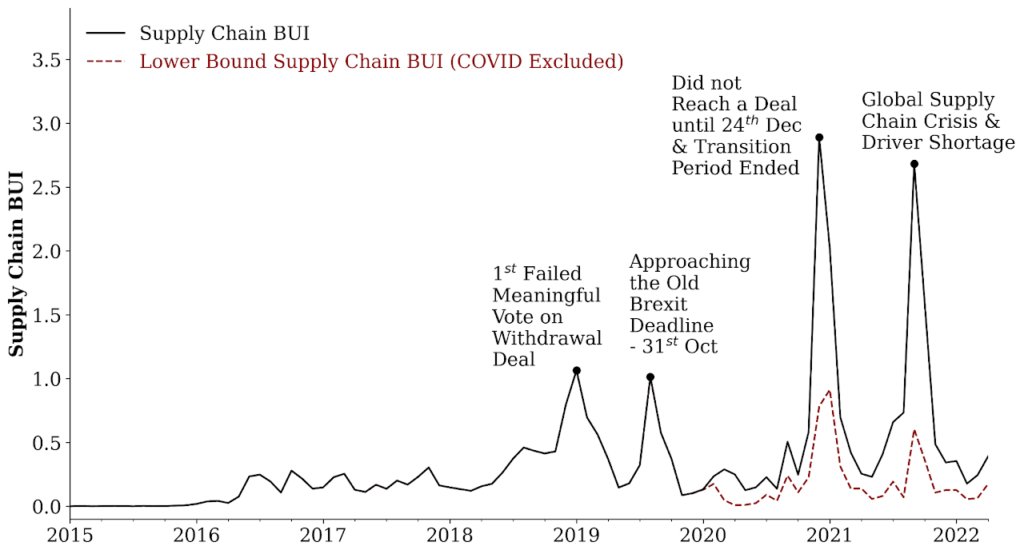
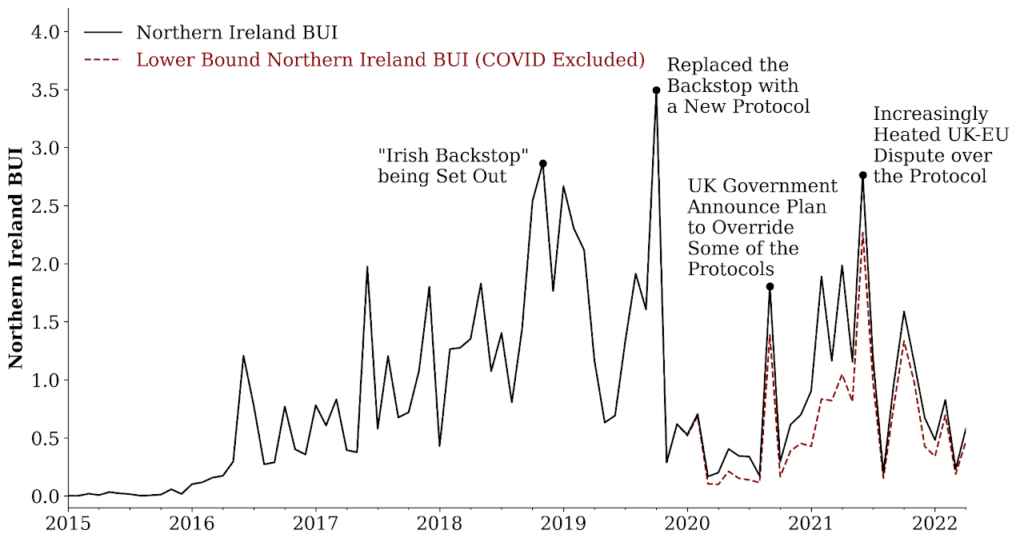
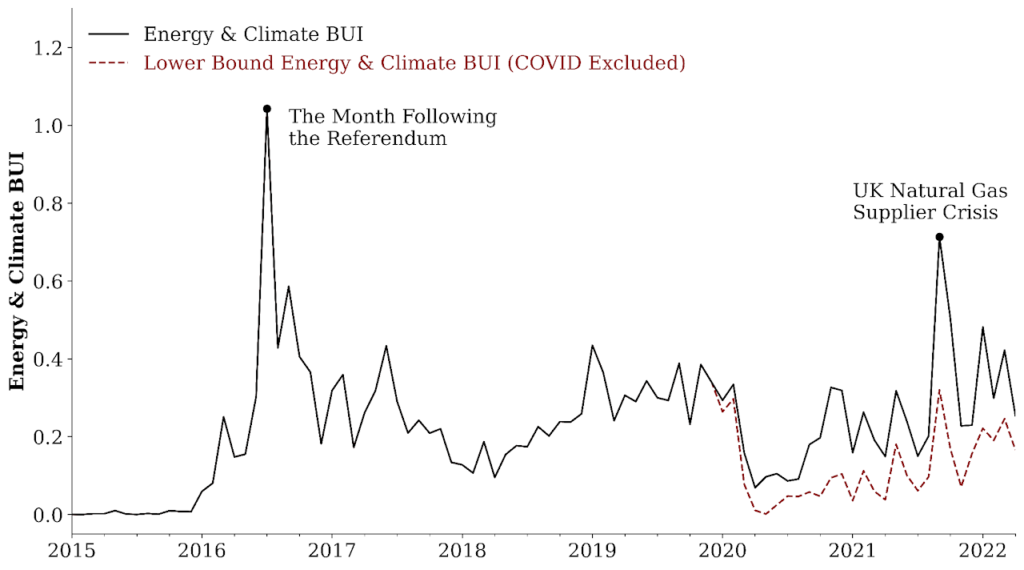
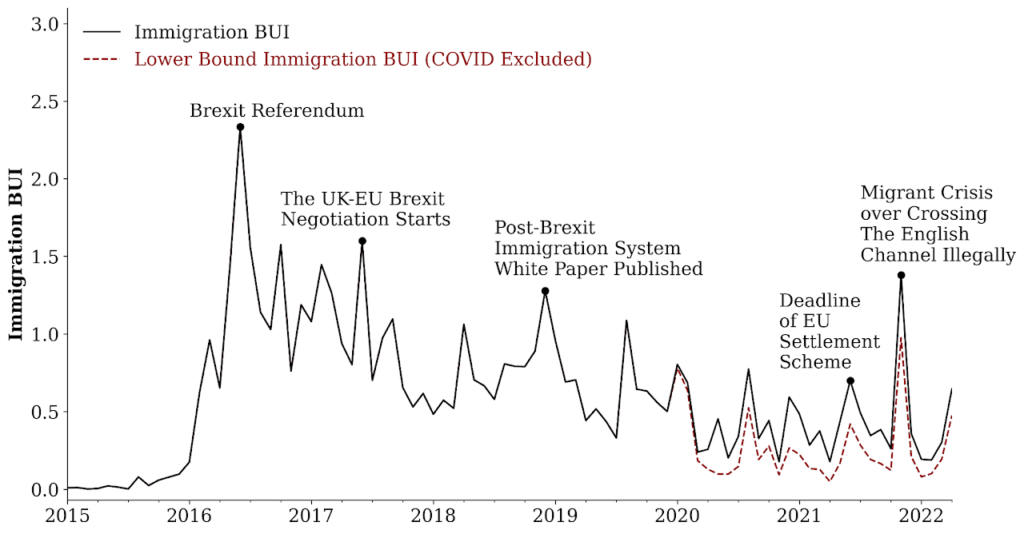
Topic-level BUI (More graphs can be found in the project website listed above.)
Why was BlueBEAR chosen?
The model I use is computationally expensive. With my own device, ideally, it would take me about a week to run my program once. My own device and the Jupyter Notebook tool for Python that I use, in addition, crashes frequently, which means I need to re-run my program from scratch. As such, the actual time it takes to run my program once, on my own device, is much greater than a week and is uncertain. More importantly, we need to run and tune the program many times to optimize our indices. The project would therefore be almost impossible to move forward if I relied solely on my own device. In this case, we are in great need of a high-performance computer like BlueBEAR, which can speed up the program to a very large extent.
"With BlueBEAR, my program task only takes about 8 hours to run and I don't have to worry about crashes"
How has BlueBEAR been useful?
BlueBEAR has helped me a lot. With BlueBEAR, my program task only takes about 8 hours to run and I don’t have to worry about crashes. More specifically, my program is parallelizable. That means, theoretically, using 10 machines can reduce the running time by 10 times. BlueBEAR allows us to set up programs in parallel. So, I split the program tasks into 120 blocks. It can be imagined as 120 laptops running my program at once, which greatly enhances the efficiency. Further, researchers can submit multiple tasks at once on BlueBEAR. I, thus, simultaneously run programs with various hyperparameters. BlueBEAR allows me to run my programs in one day, if I used my own device, this would take at least two months!
Some extra things I’d like to mention
BlueBEAR also provides interactive apps, which are very user-friendly. Using interactive apps is just like using your own device. The difference is that on BlueBEAR, you can open multiple windows, just as if you had multiple devices. On BlueBEAR, you still can have up to 72 CPU cores per program, compared to 8 cores on a typical laptop.
BlueBEAR also has incredibly helpful staff. They offer drop-in sessions, training classes, etc. This has been a great help to me.
We were so pleased to hear of how Claire able to make use of what is on offer from Advanced Research Computing, particularly to hear of how she has made use of BlueBEAR – if you have any examples of how it has helped your research then do get in contact with us at bearinfo@contacts.bham.ac.uk. We are always looking for good examples of use of High Performance Computing to nominate for HPC Wire Awards – see our recent winners for more details.
